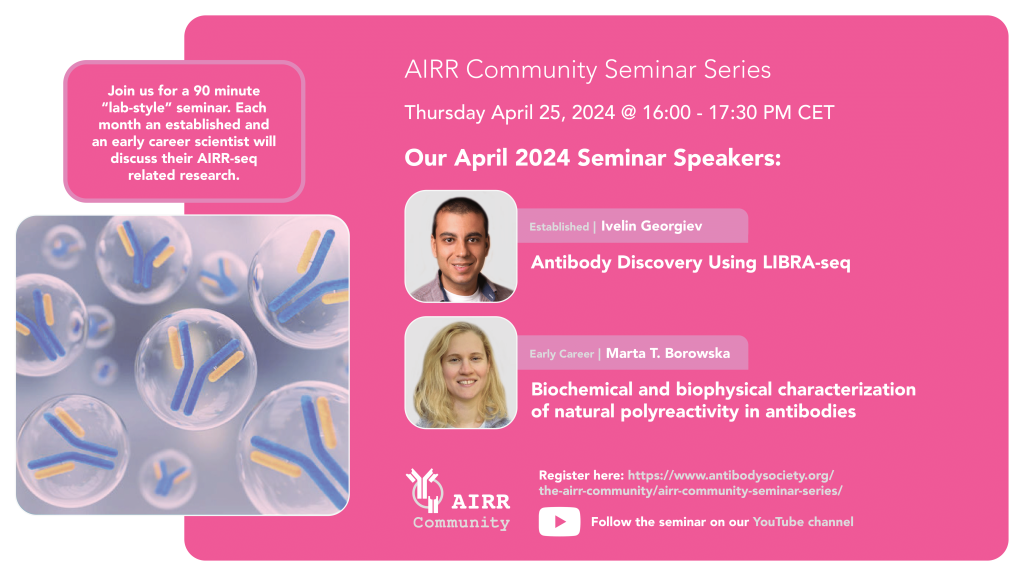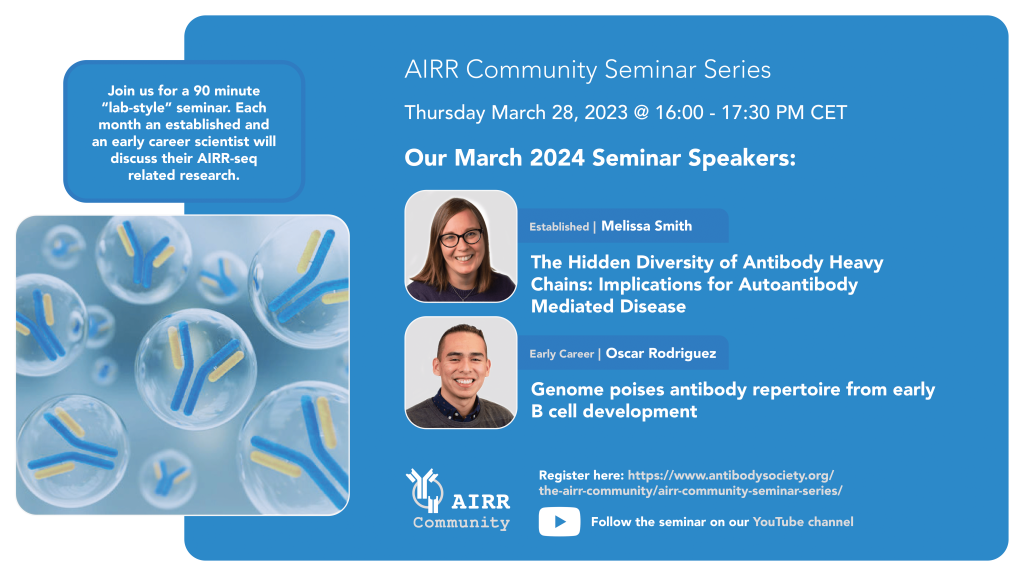The Society’s Communication and Membership Committee is glad to announce the 2024 Research Competition winners!
Our student winner is:
Ms. Marlena Surówka (Roche Innovation Center Zurich, Ludwig Maximilian University of Munich)
Poster title: P329G-Engager: A Novel Universal Antibody-based Adaptor Platform For Cancer Immunotherapy
 Our post doc winner is:
Our post doc winner is:
Dr. Shivani Sachdev (National Institutes of Health (NIH))
Poster title: Leveraging antibodies and chemistry to interrogate cell surface receptor function
The Antibody Society sponsors competitions each year to recognize and encourage the research activities of promising student/postdoctoral fellows. For the Research Competition, participants submitted a summary of their work on a topic related to antibody research. Winners (1 student and 1 post-doc) were selected based on originality, creativity, scientific merit, clarity of their research and its presentation.
Winners will receive:
- broad exposure of their work,
- a $400 cash prize,
- and the option of a free registration to: 1) Schrödinger’s online course, Introduction to Computational Antibody Engineering; or 2) virtual Antibody Engineering & Therapeutics.
Congratulations to our winners and thanks to everyone who participated!
Watch out for our next Research Competition in 2025!
Information on past competitions and winners can be found here.




